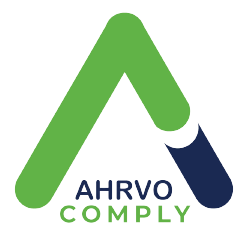In an increasingly regulated business environment, Know Your Customer (KYC) compliance has become a cornerstone for companies across various industries. From financial institutions to online marketplaces, verifying the identities of customers is essential for mitigating risks, ensuring regulatory compliance, and safeguarding against financial crimes.
While some businesses opt to establish in-house KYC processes, others choose to outsource this function to third-party providers. In this comprehensive guide, we’ll delve into the intricacies of both approaches, highlighting their respective advantages and disadvantages to help businesses make informed decisions.
Understanding the Importance of KYC:
Before delving into the comparison between in-house and outsourced KYC solutions, it’s crucial to grasp why KYC is indispensable for businesses:
– Regulatory Compliance: Many sectors, including banking, fintech, and e-commerce, are subject to stringent regulations that mandate KYC procedures to prevent money laundering, terrorist financing, and other illicit activities.
– Risk Mitigation: KYC processes enable businesses to verify the identities of their customers, reducing the likelihood of fraudulent activities, identity theft, and reputational damage.
Distinguishing Between In-House and Outsourced KYC:
In-house KYC involves companies developing and managing their own customer verification processes internally. Conversely, outsourced KYC entails leveraging third-party solutions or service providers to conduct identity verification and compliance checks.
Pros and Cons of In-House KYC:
In-house KYC offers several benefits:
– Tailored Solutions: Companies have the flexibility to design KYC processes that align with their specific business requirements, market segments, and risk profiles.
– Control Over Data: With in-house KYC, businesses maintain complete control over sensitive customer data, ensuring compliance with data protection regulations and internal policies.
However, there are inherent challenges associated with in-house KYC:
– Resource Intensiveness: Establishing and operating an in-house KYC infrastructure requires significant investments in manpower, technology, and ongoing maintenance.
– Operational Burden: Manual verification processes can be laborious, time-consuming, and prone to errors, particularly as customer volumes increase.
– Compliance Risks: Managing regulatory compliance and staying abreast of evolving AML/KYC regulations can pose challenges for internal teams, potentially exposing the business to legal and financial risks.
Pros and Cons of Outsourced KYC:
Outsourcing KYC functions offers several advantages:
– Cost Efficiency: Third-party KYC solutions often provide cost-effective alternatives to in-house operations, reducing upfront investments and ongoing operational expenses.
– Expertise and Scalability: Outsourced providers offer specialized expertise in compliance, leveraging advanced technologies and scalable infrastructure to accommodate business growth and regulatory changes.
– Time Savings: Automated verification processes offered by third-party providers can streamline onboarding procedures, enhancing the customer experience and reducing time-to-market for new products or services.
However, there are considerations to be mindful of when opting for outsourced KYC:
– Data Privacy Concerns: Entrusting customer data to third-party providers raises privacy and security considerations, necessitating robust data protection measures and contractual safeguards.
– Integration Complexity: Integrating outsourced KYC solutions with existing systems and processes may require technical expertise and customization, potentially leading to implementation challenges and delays.
– Reliance on External Partners: Businesses must rely on the reliability and performance of third-party providers, requiring careful vetting and ongoing monitoring to ensure compliance and service quality.
Choosing the Right Solution:
Selecting between in-house and outsourced KYC solutions requires a thorough evaluation of various factors, including the company’s size, industry, regulatory obligations, risk appetite, and growth trajectory. While in-house KYC may offer greater control and customization, outsourced solutions provide cost-efficiency, scalability, and expertise. Striking the right balance between these considerations is essential for optimizing compliance efforts, mitigating risks, and maintaining a competitive edge in the marketplace.
Conclusion:
In conclusion, KYC compliance is an indispensable aspect of modern business operations, critical for meeting regulatory requirements, safeguarding against financial crimes, and building trust with customers. Whether businesses opt for in-house KYC processes or leverage outsourced solutions, prioritizing compliance, security, and customer experience is paramount. By understanding the nuances of each approach and aligning them with their specific needs and objectives, companies can navigate the complexities of KYC compliance effectively and sustainably in today’s dynamic business landscape.
Ready to bolster your AML compliance framework and enhance your KYC practices for crypto transactions? Schedule a demo with a risk specialist today and discover how Ahrvo Comply can streamline your compliance journey.







